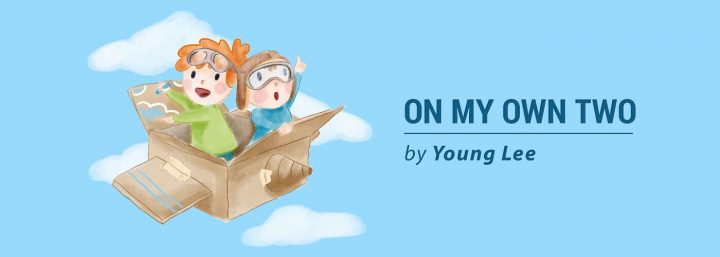It’s Time for Disabled Narratives to Take the Spotlight
Written by |

Column by Young Lee
As an Asian American, I shared the joy and pride felt by much of the global Asian community when “Parasite,” a South Korean genre-bending thriller directed by Bong Joon Ho, won best international feature film, best picture, best screenplay, and best director at the 92nd Academy Awards. As a community, we felt validated in a way we hadn’t believed possible as many of us thought that Asian narratives would never receive mainstream appreciation in the West.
But the success of “Parasite” seems to have proven us wrong. Its win flew in the face of much of what we as Asian Americans had been primed to expect from our years of upbringing in the United States — that much of our Asian culture and stories were too alien, too different, and too unsightly to garner mainstream praise.
In an article published in Variety, Sharon Choi, Bong’s Korean American translator, described her cultural hybridization and her surprise at the film’s wider appeal. “I had to come to terms with the fact that I would be able to share only half of myself with most people I met. Likewise, two cultures are usually just one too many for a film to contain. And yet here was this story that seemed to effortlessly break through all barriers.”
As an Asian American, I celebrated the fall of a long-perceived social barrier for Asian culture, but as someone who is also disabled and American, it seems as if the disabled community is still waiting for a similar moment.
It’s something I’ve been mulling over recently. It started when I heard about the backlash that George Alevizos, a Canadian actor living with a disability, received from a small number of “Star Trek” fans who were seemingly upset about the existence of a disabled Starfleet officer.
And while it was unfortunate, it also turned me onto some of the advocacy Alevizos has been a part of, including his efforts to make casting locations more accessible for those with disabilities. It has expanded my view of the movie industry and caused me to consider things I hadn’t before.
I had never given much thought to the accessibility of casting houses, transportation to and from auditions, or employment options between projects. It made me realize just how many obstacles exist to the representation that many of us in the disability community crave.
It’s daunting and somewhat demoralizing to think about these struggles. However, such thoughts also caused me to take some solace in the steps forward and the small achievements that are worth celebrating.
For example, the desire for broader representation for those with disabilities reminded me of Disorder: The Rare Disease Film Festival, an event that began in 2017 and showcases mostly short films about folks with disabilities. While the 2019 festival took place on the opposite coast from where I live, many of the shorts are available online and free to watch. So for the past few weeks, I’ve been catching up on some of the films from the festival.
I choked up with emotion while watching the beautiful but simple story of “Ian” — an animated short film about a kid’s desire for acceptance on the playground. I found “PKU: Protein Kills Us,” a poignant sci-fi-tinged short about a disease called phenylketonuria, sobering.
And with each documentary short I watched, I discovered a new appreciation for scientists and researchers and the greater disabled community.
Alevizos said in an interview last year that he’d like to play an action role — perhaps even a wheelchair-using James Bond. That’s something I don’t think we’ve seen before. I’d like to see that. Hopefully, we will someday.
***
Note: Charcot-Marie-Tooth News is strictly a news and information website about the disease. It does not provide medical advice, diagnosis, or treatment. This content is not intended to be a substitute for professional medical advice, diagnosis, or treatment. Always seek the advice of your physician or other qualified health provider with any questions you may have regarding a medical condition. Never disregard professional medical advice or delay in seeking it because of something you have read on this website. The opinions expressed in this column are not those of Charcot-Marie-Tooth News or its parent company, Bionews Services, and are intended to spark discussion about issues pertaining to Charcot-Marie-Tooth.






Leave a comment
Fill in the required fields to post. Your email address will not be published.